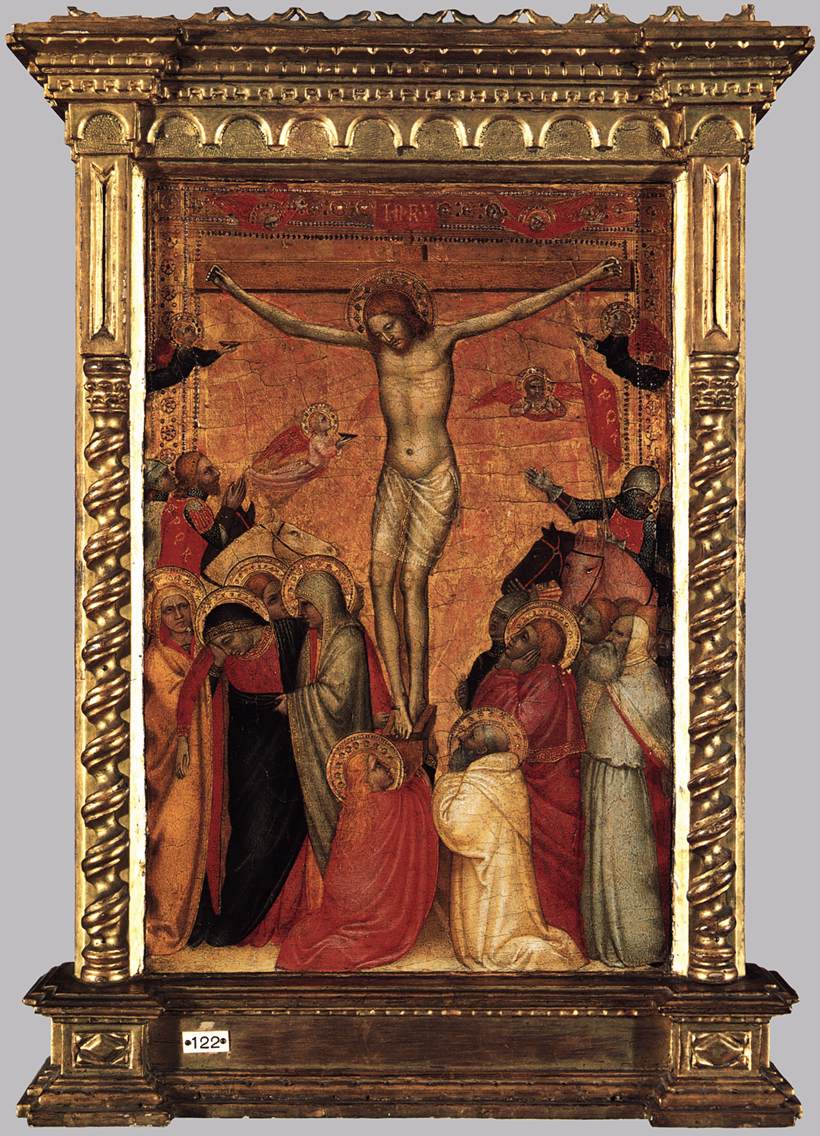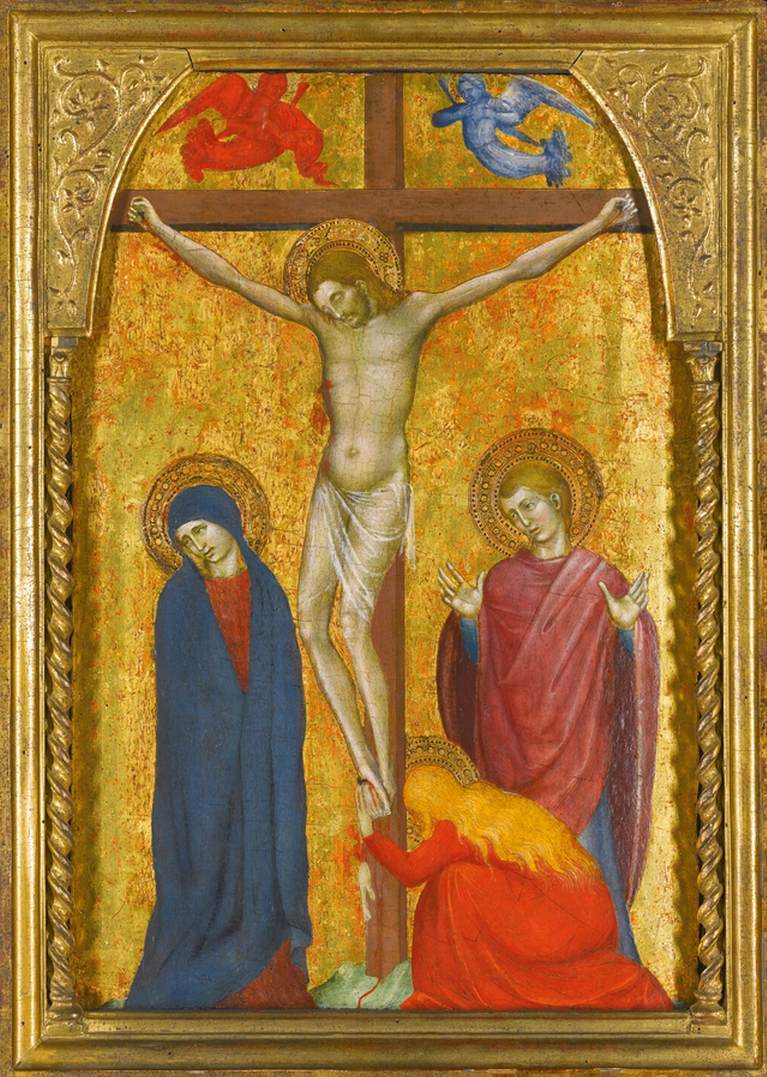Description
The painting "The Crucifixion" by Giovanni Da Milano is a masterpiece of Italian Gothic art of the 14th century. The work, which measures 51 x 36 cm, depicts the crucifixion of Christ and is full of detail and symbolism.
Da Milano's artistic style is clearly visible in the painting, with his use of smooth, curved lines, and attention to detail in figures and landscapes. The composition is impressive, with the figure of Christ in the center and the figures of the Virgin Mary and Saint John on either side.
Color is another interesting aspect of the work. Da Milano uses a soft and delicate color palette, with pastel tones that contrast with the dark background. The light emanating from the figure of Christ is particularly remarkable, as it illuminates the figures of the Virgin and Saint John.
The history of the painting is also fascinating. The work is believed to have been commissioned by the Bardi family in Florence in the 14th century. The painting was later acquired by the Philadelphia Museum of Art in 1917, where it has been one of the most prominent pieces in the collection.
There are also little-known aspects of the work. For example, it is believed that the artist used a dry painting technique to create the fine details of the work. Furthermore, the figure of Christ is depicted with his eyes closed, which is unusual in Christian iconography.
In short, Giovanni Da Milano's "The Crucifixion" is an impressive work of art that combines a refined artistic style, an impressive composition, a delicate color palette and a fascinating story. It is a work that deserves to be admired and studied by art lovers and experts alike.


